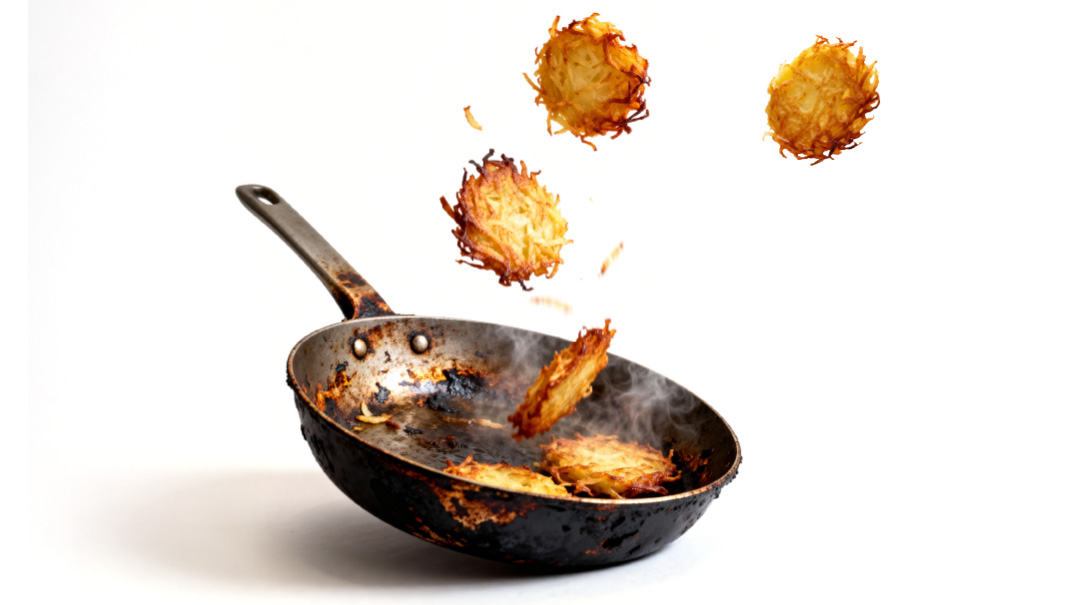A Letter to Heaven
| July 26, 2022I carried the story of Tali and her mother in my heart throughout my childhood

I
don’t read the news. A long time ago, I realized that being bombarded by horrible stories wasn’t good for my emotional or mental health.
But there’s one caveat: I drop into one news site every few days for updates on the Covid situation. Here in Israel, I find that it’s an important thing to do — it’s hard to keep track of rapidly changing laws without checking in every so often.
Nothing prepared me for the headline on January 25, 2022.
A mother and her toddler daughter were in a car together, driving to preschool. In Rechovot. Then, their car blew up. Exploded. Bizarrely, there was a bomb planted in the car.
Both survived, though the mother’s condition was serious.
That was it. Just the headline. I do not read articles.
But it was enough. Enough to take me back in time... to a time before I was born.
I shivered at the exact count — it was just one month short of 42 years ago.
February 23rd, 1980.
A young girl and her mother climbed into their car.
Ten minutes later, their car blew up. Exploded.
Bizarrely, there was a bomb planted in the car.
Neither mother nor daughter survived.
Over a decade later, a baby girl was born. The baby girl’s parents were second cousins with the little victim. And, during their childhoods, they’d both suffered the loss of their mutual cousin Tali, who was two years younger than them. They both knew their first daughter would bear their murdered cousin’s name. So they named their baby girl Tali.
How many children are named after a little girl who was blown up in a car (by her father, actually, but let’s leave that aside)?
When I was two years old, a chareidi relative gently broached the topic with my not-yet-so-religious parents. “You know,” she told them, “naming children after people killed in a tragic way, at a young age, is not recommended. Perhaps you should consider changing Tali’s name.”
My parents loved my name. Nonetheless, they took the comment seriously. My father consulted with Rav Neventzal of the Old City, who advised adding the name Chaya — life. He advised my parents to legally change my name and to make sure that all my official documents bore my new name. My parents did so.
I carried the story of Tali and her mother in my heart throughout my childhood. It was a fact of my existence, a family tragedy. Now and then, the story would come up, but in general, it didn’t really affect my life. Occasionally, I wondered about my namesake. I wondered what she had been like, and if I looked like her. When I learned about the concept of gilgulim, I wondered if perhaps I could be the murdered Tali’s reincarnation.
Most people did not call me by both names. When I started high school, I decided to introduce myself as Tali Chaya, as Rav Neventzal had advised. Each of my names reverberated with the echoes of the original Tali.
My mother would call me her “little dew drop” (tal is dew).
A high school teacher especially loved my name. She would expound upon the significance of being “living dew” — Tal Chaim.
Other teachers informed me that Tali is a nickname, not a name. One memorable math teacher insisted on calling me “Talia,” despite my repeated explanations that it wasn’t my name.
I wondered if perhaps Tali had been Tali’s nickname. Perhaps she’d been named a “normal” name for which Tali is a popular nickname — perhaps Tal, Avital, Rivital, or Talia. But there was no one to ask; her mother had been killed. Her father, a madman who managed to escape a prison sentence due to “lack of evidence” that he’d been the one to commit the heinous crime — despite a long and violent history, and the fact that Tali’s mother had been pleading for a get from her volatile husband, and despite multiple death threats — had long vanished into the mists of time. No one in the family had made any effort to keep up with him.
My parents told me there were official records that their cousin’s name had been just “Tali,” but having never seen any of them, a part of me still wondered. There was one thing, though, that I knew for certain — I’d certainly been named Tali, which made it my name.
That morning, on January 25, the headline jumped out at me. For the first time in years, I once again wondered about my murdered relatives. Though a generation removed, the memory cradled within my name connected me to Tali and her mother. Suddenly, I wanted to know more.
A few tries at a Google search unearthed two old, archived Israeli newspaper articles. By the time I was done reading I wondered if searching for this information had been a wise thing to do. Black-and-white photos of a car engulfed in flames, eyewitness reports of screams coming from within the car, moving descriptions of Tali’s and her mother’s personalities, and harrowing details about their traumatic history with Tali’s violent father clouded my mind.
These individuals, long deceased, suddenly became real people. They had fears, dreams, and lives. They had laughed and cried and eaten chicken and potatoes. They had lived, and then they had died, and… and how many people really remember them? Tali had been the only child of the sorry union. Tali’s grandparents have long since passed on.
Just the week before, I’d paid a shivah call. Someone had shared an idea that felt so beautiful. They described how the neshamos in Olam HaEmes receive “letters” from those who remain on Earth. Any mitzvah done l’illui nishmas the deceased is like a letter or a note from their loved ones. And every day, the neshamos inquire, “Are there any letters for me today?”
When was the last time Tali and her mother had received a letter? When was the last time that someone had done something for their neshamos?
I was shaken and disturbed by everything I’d read, everything I’d seen. But after a day of ruminating, I slowly realized that I didn’t have to stay stuck there — in the horror and the devastation.
I could turn the experience into something bigger than that. I could send Tali and her mother a note from Olam Hazeh. I could connect to their neshamos. It almost felt like I could comfort them — as perhaps I could.
After my meal, I opened my bentsher. And I said every word. Slowly. Carefully. And I thought about Tali. About her mother.
I was sending them a letter, covered in love, coated with tears.
(Originally featured in Family First, Issue 803)
Oops! We could not locate your form.







